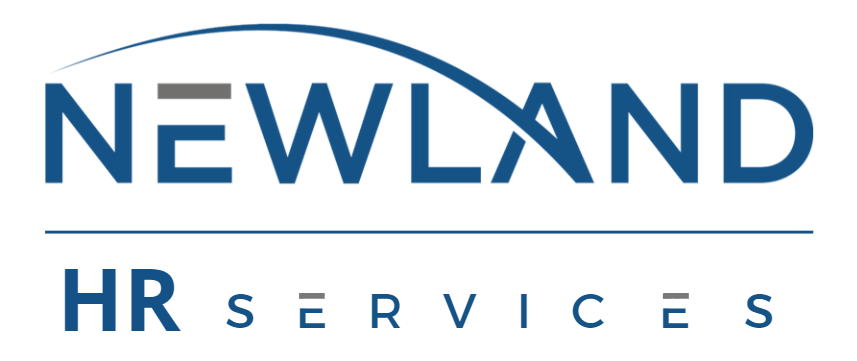The history of affirmative action in the United States dates back to the Civil Rights movement of the 1960s, which sought to end racial discrimination and segregation. The Civil Rights Act of 1964, which prohibited discrimination in employment and education, was a significant milestone in this effort. However, despite the passage of this law, discrimination persisted, and many groups continued to face significant barriers to equal opportunity.
In 1965, President Lyndon B. Johnson issued Executive Order 11246, which required federal contractors to take affirmative action to ensure that they did not discriminate on the basis of race, color, religion, sex, or national origin. This executive order was a significant step in promoting equal opportunity and was later expanded to include affirmative action for people with disabilities and veterans.
In the 1970s, the Supreme Court began to consider the legality of affirmative action programs. In the case of Regents of the University of California v. Bakke (1978), the Court held that race could be considered as one factor in college admissions but that quotas or racial set-asides were unconstitutional. This decision allowed universities to use affirmative action as a tool for promoting diversity, but it placed limits on the ways in which it could be implemented.
In the 1980s and 1990s, the use of affirmative action came under increasing scrutiny, with some arguing that it was unfair or discriminatory. In 1996, California voters approved Proposition 209, which banned the use of affirmative action in public education, employment, and contracting in the state. Other states followed suit, and the legality and effectiveness of affirmative action continue to be debated today.
Despite the controversy surrounding affirmative action, many believe that it is an important tool for promoting equal opportunity and combatting discrimination. The goal of affirmative action is to ensure that all people have access to the same opportunities and can achieve their full potential, regardless of their race, gender, ethnicity, or other factors.
What is Affirmative Action?
Affirmative action refers to policies and programs that aim to increase the representation of historically disadvantaged groups in areas such as education, employment, and business. These groups may include women, people of color, people with disabilities, and members of certain religious or cultural minorities.
The goal of affirmative action is to promote equal opportunities and combat discrimination by taking proactive measures to ensure that historically marginalized groups have access to the same opportunities as those who have traditionally held power and privilege. This might include setting goals for the recruitment and hiring of underrepresented groups, creating scholarships or other forms of financial support for members of these groups, and developing training programs to help them gain the skills they need to succeed.
Affirmative Action in the Workforce – 5 Benefits to Implementation
Affirmative action is a set of policies and practices designed to promote diversity and ensure equal opportunity in education, employment, and other areas where historically marginalized groups have faced discrimination. The goal of affirmative action is to address systemic inequalities and provide a level playing field for people from diverse backgrounds. Although affirmative action has been the subject of controversy and legal challenges, many believe it is a necessary tool for promoting equity and creating more inclusive institutions.
Affirmative action can be an effective tool for businesses to promote diversity, equity, and inclusion (DEI) in their workforce. Five benefits include increased diverse talent and skills, improved retention, enhanced brand reputation, increased innovation and compliance.
Recruiting Diverse Talent
As a result of affirmative action, businesses can identify and recruit diverse talent by setting targets for recruiting and hiring underrepresented groups. Thus, companies can recruit a more diverse pool of candidates, resulting in a more diverse workforce.
Improved Retention
Creating an inclusive workplace culture through affirmative action can also assist businesses in retaining their diverse employees. It is more likely that employees will remain with a company for an extended period when they feel valued and included.
Enhanced Brand Reputation
An organization prioritizing DEI and taking proactive steps to address inequalities will likely be viewed as socially responsible and ethical, resulting in an enhanced brand reputation and likely attracting customers who are also socially justice-minded.
Increased Innovation and Creativity
Diversity in the workplace can lead to increased innovation and creativity due to the various viewpoints and experiences brought to the table. Businesses can remain competitive in their fields by promoting diversity through affirmative action.
Compliance
Some businesses must implement affirmative action as a legal requirement, particularly those receiving government contracts. In compliance with affirmative action regulations, companies can avoid legal penalties and reputational damage that may result from non-compliance.
When implemented successfully, affirmative action strategies can contribute to the long-term success of companies by helping them to attract, retain, and develop a diverse workforce, improve the reputation of their brands, and enhance their innovation and creativity.
Real life Success Stories
There are many real-life examples of businesses that have implemented affirmative action policies and have seen positive results in terms of diversity, equity, and inclusion. Here are a few examples:
Intel
In 2015, Intel announced a $300 million initiative to increase diversity in its workforce. As part of this initiative, Intel set a goal of reaching full representation of women and underrepresented minorities in its workforce by 2020. By 2019, Intel had achieved its goal of reaching full representation of women and underrepresented minorities in its U.S. workforce. They also include stories, other DEI initiatives and social impact.
Microsoft
In 2016, Microsoft implemented a new policy that requires suppliers doing business with the company to provide paid parental leave to their employees. The policy was designed to increase gender equity and support working parents. Since implementing the policy, Microsoft has seen an increase in the number of women-owned and minority-owned suppliers doing business with the company.
PepsiCo
In 2010, PepsiCo launched its “Performance with Purpose” initiative, which included a goal of increasing the representation of women and people of color in leadership positions. Since launching the initiative, PepsiCo has seen an increase in the percentage of women and people of color in leadership positions. PepsiCo also participate in other DEI initiatives for their workforce.
These are just a few examples of many businesses that have implemented affirmative action policies and have seen positive results in terms of diversity, equity, and inclusion. By setting goals, committing resources, and taking proactive steps to address inequalities, these businesses have been able to create more inclusive and diverse workplaces, which have in turn contributed to their long-term success.
Affirmative Action Offers Opportunity and Brings Results
While affirmative action is often a controversial issue, with some people arguing that it unfairly gives preference to certain groups over others and that it perpetuates discrimination in its own way, affirmative action is necessary to level the playing field and create a more equitable society. Ultimately, the effectiveness and appropriateness of affirmative action policies depend on many factors, including the specific goals of the program, the context in which it is implemented, and the broader social and political climate.
Newland HR Services
For over three decades, Newland HR Services has been aiding the people and businesses of Puerto Rico in their affirmative action endeavors. If you’re having trouble with a strategy or don’t know where to start, reach out to us to see how we can assist you in filling your talent gaps and boosting your diversity hiring efforts.








